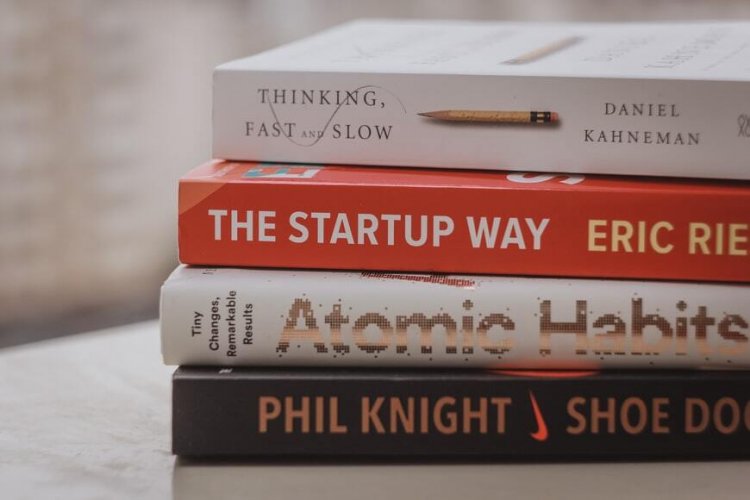Startups are businesses that aim to disrupt industries and change the world at a large scale. Startup founders fantasise about providing society with something it desperately needs but has yet to produce, resulting in exorbitant valuations and an exponential return on investment through an initial public offering (IPO). They are young companies whose mission is to create a one-of-a-kind product or service, bring it to market, and make it enticing to buyers. A startup, which is based on innovation, strives to improve existing products or develop totally new categories of goods and services, disrupting long-standing ways of thinking and doing business across entire industries. As a result, many startups are dubbed “disruptors” in their respective industries. Startups in Big Tech, such as Facebook, Amazon, Apple, Netflix, and Google (together known as FAANG stocks), are well-known, but companies like WeWork, Peloton, and Beyond Meat are also considered startups.
How Are Startups Funded?
According to a Forbes article, startups usually raise money through numerous rounds of investment, which are known as: –
- When the founders, their friends, and family invest in the company, it is referred to as bootstrapping.
- Next, there will be “angel investors” or high-net-worth individuals who invest in early-stage enterprises, provide seed money.
- Then, there are the Series A, B, C, and D funding rounds, which are primarily headed by venture capital firms and involve investments of tens to hundreds of millions of dollars.
- Finally, a startup may elect to go public and raise money from investors through an initial public offering (IPO), a special purpose acquisition company (SPAC), or a direct listing on a stock exchange. A public company can be invested in by anybody, and startup founders and early supporters can sell their holdings for a large profit.
The Securities Exchange Commission (SEC) believes that their substantial incomes and net worths help shield them from potential loss, hence the earliest phases of startup investment are limited to those with very huge pockets, known as accredited investors.
Money is virtually always necessary in the business, even if some individuals would not want to admit it. Startup capital assists in getting a product or concept off the ground and keeping it there. In most circumstances, being enthusiastic about your project and devoting time to it is no longer sufficient. If you want your startup to succeed nowadays, you’ll need to do market research, design, and test your product, advertise it to your target audience, and have a full marketing budget. All this cost money, which is why startup funding is so vital in the business world.
Without further ado, here are the 10 APAC startups that received more than $50 million in funding in the last two months, according to Crunchbase data.
1. Binli Technology
.jpg)
Details of Binli Technology
Founder: Su Weiming
Founded: 2021
Industry: Automotive
Headquarter: Beijing, China
Beijing Binli Information Technology Co. Ltd. owns the “Binli” brand. Su Weiming, a former executive vice president of Volkswagen, is the company’s legal representative in China, according to a report by the Financial Associated Press. We can also identify that its parent company is BeyonCa HK Limited, which has five natural-person shareholders, including You Zheng, Dongfeng Motor Group’s deputy general manager, and Liao Xianzhi, chairman of Wuhan Dongfeng Insurance Brokers Co. Ltd. According to sources, Dongfeng Motor Group has invested in and plans to produce for Binli Information, an intelligent electric startup. Binli intends to make significant announcements during the Beijing Auto Show this year. Dongfeng Motor Group has not published any relevant information about its investment and collaboration with this startup company as of press time. The startup was founded on June 11, 2021 with an initial registered capital of up to $50 million. On November 19, 2021, the registered capital was increased by 300% to 200 million US dollars. On Febuary 15, 2022, Binli Technology raised $1.5B private equity from Changjiang Capital, according to Crunchbase.
2. Bodhi Tree

Details of Bodhi Tree
Founder: James Murdoch and Uday Shankar
Founded: 2022
Industry: Investment
Headquarter: Tirunelveli, Tamil Nadu, India
According to the duo on Feb 10, 2022, James Murdoch and Uday Shankar have started a new enterprise named Bodhi Tree with a $1.5 billion investment from Qatar Investment Authority as they want to expand their investment in Southeast Asia and India. Bodhi Tree is an investment platform in India and Southeast Asia that offers opportunities in the media and consumer technology industries. Bodhi Tree will use technology to deliver disruptive solutions that produce transformational outcomes in sectors with high levels of consumer engagement, such as media, education, and healthcare, affecting millions of people across the region. To attain these goals, Bodhi Tree will invest at a large scale. Following Murdoch’s retirement as CEO of 21st Century Fox, the two most recently worked at investment firm Lupa Systems. Shankar was previously the chair and CEO of Star India, which was owned by Fox prior to the company’s $71.3 billion acquisition by Disney. Last year, Lupa Systems was trying to raise $345 million through a SPAC.
3. Jidu Auto

Details of Jidu Auto
Founder: Xia Yiping
Founded: 2021
Industry: Automotive
Headquarter: Shanghai, China
Baidu, a Chinese technology company and Geely, an automobile manufacturer, are increasing their investment in Jidu, an electric car venture in which they collaborated just over a year ago. On January 26, 2022, the companies announced that Jidu would receive around $400 million in a Series A fundraising round. Jidu was founded in March 2021, with an initial investment of $300 million from unknown investors, and the capital injection comes less than a year later. According to Jidu, the money will be use to fund research and development as well as mass production. According to information obtained through Wind Information, Baidu owns a majority of Jidu, with a 55% interest, and Geely owns a 45% stake.
4. Niyo

Details of Niyo
Founder: Vinay Bagri and Virender Bisht
Founded: 2015
Industry: Finance, Banking
Headquarter: Bangalore, India
Niyo is an Indian company that offers digital savings accounts and other banking services to mostly salaried people. It collaborates with financial institutions to assist them provide a more modern and comprehensive user experience and services. It also offers a wealth management service that enables customers to invest in mutual funds and domestic stocks. Zero percent forex markup and “invest the change,” which rounds up a customer’s spending and invests a portion of it, are two of its most popular services.
According to TechCrunch, Niyo has secured $100 million in a new financing round on Feb 24, 2022, as it tries to expand its lending and insurance offerings and gain a stronger foothold in the world’s second largest internet market. The Series C funding round for the Bengaluru-based business was co-led by Accel and Lightrock India. Existing investors like Prime Venture Partners, JS Capital, and Beams Fintech Fund all contributed to the round, bringing the startup’s total funding to around $150 million.
5. Trust Machine

Details of Trust Machine
Founder: Muneeb Ali and J.P. Singh
Founded: 2022
Industry: Bitcoin, Blockchain
Stacks creator, Muneeb Ali, and Princeton University computer science professor, J.P. Singh, co-founded Trust Machines, which has raised $150 million in funding to develop Bitcoin as a Web 3 platform on Feb 5, 2022. Breyer Capital, Union Square Ventures, Digital Currency Group, GoldenTree, and Hivemind are among the investors in the round. The valuation was kept under wraps. Bitcoin’s ability to prosper on Web3 is on the line. Trust Machines is creating an ecosystem of apps and platform technologies with the goal of realising bitcoin’s full potential. The goal of Trust Machines is to turn bitcoin’s trillion-dollar worth into more productive capital and build a bitcoin application economy.
6. Phantom

Details of Phantom
Founder: Chris Kalani, Francesco Agosti
Founded: 2021
Industry: Bitcoin, Cryptocurrency, FinTech
Headquarter: San Francisco Bay Area, West Coast, Western US
Phantom, a San Francisco crypto startup, is a reinvented digital wallet for DeFi and NFTs. The company has attracted Solana’s attention in a $109 million investment round, on Feb 1, 2022, headed by Paradigm and valued at $1.2 billion. According to TechCrunch, the unicorn round comes six months after the company raised $9 million from Andreessen Horowitz in a Series A round. The startup had 40,000 active members at the time, but today has 2.1 million, according to CEO Brandon Millman, who claims that the company onboards 100,000 new customers per week. Phantom’s next significant goal is to make its wallet multi-chain and support a blockchain other than the Solana ecosystem. The startup isn’t saying where it plans to devote its resources, other than to provide support for a blockchain that’s compatible with Ethereum’s EVM stack, which is where most crypto developers have been concentrating their efforts and where competitors like MetaMask loom large.
7. Wizard

Details of Wizard
Founder: Marc Lore, Melissa Bridgeford
Founded: 2021
Industry: AI, E-commerce, SMS
Headquarter: Greater New York Area, East Coast, Northeastern US
Marc Lore, the former CEO of Walmart, founded Wizard, a new e-commerce business. Lore has joined Wizard as a co-founder, chairman of the board, and investor. Wizard is a New York-based B2B startup in the conversational commerce market that believes text will be the future of mobile commerce. On October 6, 2021, NEA’s Tony Florence led a $50 million Series A funding round to Wizard. Melissa Bridgeford, Wizard’s co-founder and CEO, described the company as an opportunity “to build their concept on a much greater scale and to join with Marc, who’s a tremendous visionary in retail tech and an experienced creator and operator.” The company also reported that it has raised $101 million across two funding rounds in September 2021 and January 2022. The funds will be used to hire in areas such as artificial intelligence, machine learning, and natural language processing, as well as non-tech professions such as sales, finance, and operations.
8. Pixel Vault/ PUNKS Comic

Details of Pixel Vault/ PUNKS Comic
Founder: GFUNK (@Gfunkera86)
Founded: 2021
Industry: Gaming, Video games, Cryptocurrency
Investors’ most recent NFT wager is on Pixel Vault, a large NFT collection of superheroes with the goal of growing into a decentralised Marvel-style empire. On February 3, 2022, the NFT startup informs TechCrunch that it has raised $100 million in funding from Adam Bain and Dick Costolo’s 01 Advisors and Velvet Sea Venture. Punks Comic is a collaboration between NFT collector and influencer Beanie and Pixel Vault, a media company dedicated to promoting crypto-native assets through the creation of intellectual property and the use of decentralisation and crowdsourcing. Since the first release of the Punks Comic, the Pixel Vault team has embraced the comic book look, enlisting the help of some of the comic’s veteran artists to produce a massive collection of superhero NFTs that the team wants to expand into a larger media universe. Maintaining IP rights to 146 of the “Core” character NFTs while enabling wide re-use of thousands of generative characters is a challenge for the team.
9. Everyrealm

Details of Everyrealm
Founder: Janine Yorio, Jesse Stein, Julia Schwartz, TJ Kawamura
Founded: 2021
Industry: Blockchain, Cryptocurrency, Real Estate
Headquarter: Greater New York Area, East Coast, Northeastern US
Everyrealm, formerly Republic Realm, is a major online capital creation platform that assists entrepreneurs in raising the funds they require to expand. The startup creates and invests in virtual land plots in NFT-based metaverse game environments including Decentraland, The Sandbox, and Somnium Space. It also seeks to develop experiences on some of its digital property, such as their Fantasy Islands resort project in The Sandbox, which comprises 100 villas and a yacht that sold for $650,000 at the time. Everyrealm has secured $60 million in one of the largest Series A fundraising for a company managed by a female CEO to fund its growth as an independent organisation. Arianna Simpson of Andreessen Horowitz led the round as a new investor, alongside a mix of new and existing supporters, including venture firms Coinbase Ventures, Lightspeed Venture Partners, and Dapper Labs, as well as celebrity angel investors Paris Hilton, Lil Baby, and Nas. Metaverse land sales reached $501 million in 2021, according to MetaMetric Solutions, with over $86 million more sold in January 2022.
10. Companion Spine

Details of Companion Spine
Founder: Erick Cloix
Founded: 2022
Industry: Healthcare, Medical Device
Headquarter: Greater New York Area, East Coast, Northeastern US
Companion Spine is the world’s first company to create a portfolio of non-invasive diagnostic and medicinal implant solutions for the treatment of degenerative disc degeneration and lumbar spinal stenosis. The startup, which based in France and the United States, has patents and an inventory of tools and implants that it obtained in part from Medtronic through a September 2020 agreement with Companion Spine’s co-founding parent, Viscogliosi Brothers, an orthopaedic venture capital group. The company raised $55 million from Viscogliosi Brothers on February 15, 2022, to begin developing a portfolio of diagnostic instruments and implants for degenerative disc degeneration and the lumbar spine. This funding will go toward Companion Spine’s strategic development as the world’s first pure player specialising in back pain treatment exclusively through spinal joint functional motion preservation, early diagnostic, and interventional surgery solutions for the treatment of degenerative disc disease and lumbar spinal stenosis, two of the world’s most common spinal conditions, with more than 10 million potential cases every year in the United States.
Conclusion
Starting a business may be a challenging but rewarding endeavour. Having a fantastic concept and trying to bring it to market comes with a slew of hurdles, including raising funds, hiring personnel, marketing, legal work, and keeping track of finances. However, keep in mind that startups can lead to higher job satisfaction and the opportunity to leave a legacy. Everything has to begin somewhere, so why not begin here?















